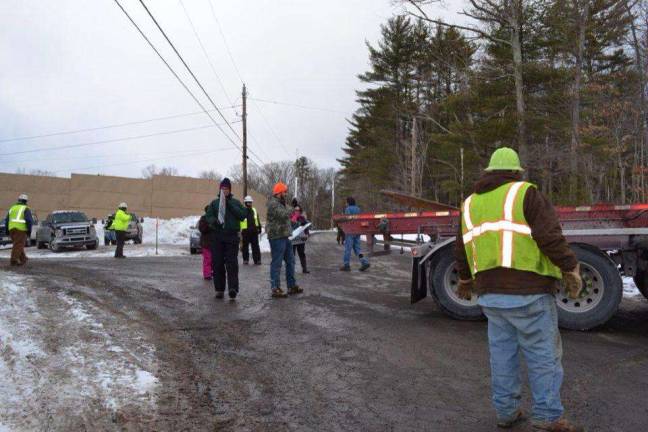How leaky is the compressor station?

MILFORD — The results of tests looking for methane gas at the Milford compressor station will be presented at the township supervisors' meeting at 7 p.m. on Monday, July 6.
Damascus Citizens for Sustainability, a grassroots group that opposed Columbia Gas in its expansion of the compressor station on Firetower Road, will present the results. The tests are meant to provide a baseline for future tests, which, when compared to the baseline, will show whether the expanded station emits more methane than is present now.
Much of the debate over the controversial station, which is widely opposed in Milford and surrounding communities, centers around the question of emissions: How much is there now? And how much will come when the expanded station is fully operational? "Blowdowns" — the periodic release of gas into the atmosphere to relieve pressure in the compressor — will increase emissions, but the state says the increase will be minor. Local opponents strongly disagree.
Damascus Citizens hired Gas Safety Inc. to test ambient methane levels in the two- to three-mile radius surrounding the station. The measurements were made with CRDS (laser) technology, which also collects time and GPS location data. This allows the plotting of methane levels on easy-to-read maps that will be shown at the meeting. The methane measured indicates the mixture of gases moving through the pipeline and compressor.
The 9,400-horsepower continuous-use compressor station is being built in the place of the old 680 horsepower station. The old station’s engines operated at a fraction of permitted capacity — less than 200 hours per year since 2004.
The results for the Milford compressor station area will be compared with readings near the 15,000-horsepower compressor station in Hancock, N.Y., both before and after that facility was built. Called ”insurance policies" by some, baseline studies are admissible in court. Printed copies of the report will be available.
Support for the study has been provided by private citizens, local associations and local environmental groups. At this time, $2,500 has been raised for the $3,500 study.
Columbia Gas expanded the station to accommodate the tremendous volume of natural gas being produced elsewhere in the state through the also-controversial process of hydrofracking. There is no hydrofracking in Pike, but the county still bears the industry's burden. Tennessee Gas Pipeline's Northeast Upgrade, which greatly expanded the capacity to transport fracked gas, was also strenuously opposed locally as it slashed its way through Pike County in 2013.
Related stories online"Pipeline task force seeks members": http://bit.ly/1JA2wG4
"Last-ditch appeals made to stop compressor expansion": http://bit.ly/1FaY780
"State approves air quality plan for compressor upgrade": http://bit.ly/1BTe7wL